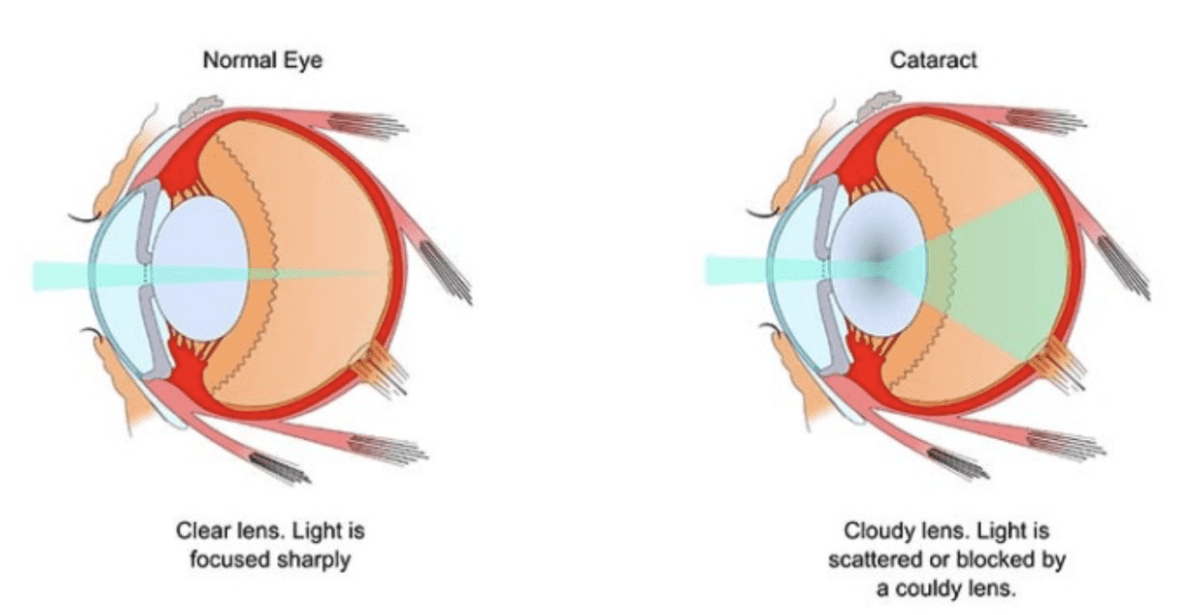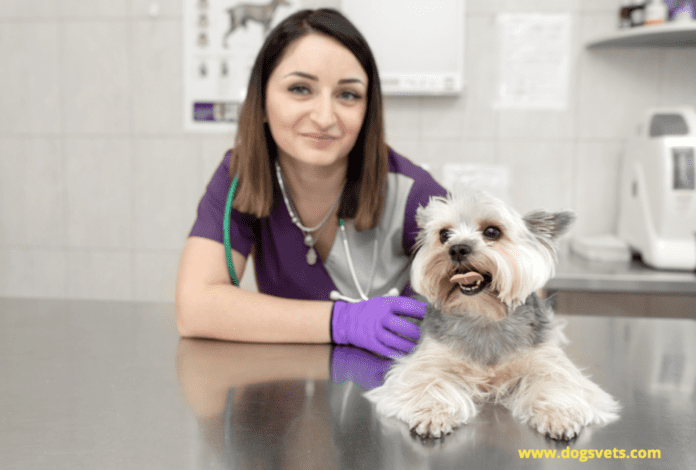Last Updated on August 14, 2022 by Dogs Vets
Dog Cataract Surgery Costs and How to Save
In addition to the surgeon’s salary, dog cataract surgery costs include animal hospital expenses, disposable supplies, and post-operative antibiotics.
To save money, ask for a trial of antibiotics or eye drops from your veterinarian. You can purchase generic brands of these items. In addition, ask if you can get generic versions of eye drops from another veterinarian. This way, you can save a considerable amount of money.
Cost
The average cost of dog cataract surgery is $2700 to $4000, depending on the procedure. Dog cataract surgery includes the original exam, diagnostic tests, anesthesia, surgery, and post-operative care.
There may be additional charges associated with additional steps. There are many treatments that claim to cure canine cataracts, including Lanosterol eye drops.

Owners should always consult with their veterinarian before using any treatment for their dog.
While most health insurance policies don’t cover the entire cost of dog cataract surgery, many can help you pay for the procedure. The amount of the deductible is usually between $250 and $500.
The insurance company reimburses 50 to 70 percent of these costs.
This estimate can vary greatly, depending on your dog’s age, medical condition, and health insurance plan. If your dog has a pre-existing condition, your insurance company may have to pay 100% of the vet bill.
Recovery period
The first step after dog cataract surgery is the recheck examination, which is typically held two weeks after surgery. The veterinarian will complete pre-operative bloodwork and an ERG prior to the surgery, and will re-examine your dog the following morning.
Although you won’t see your pet during this time, you will be required to return to the clinic for several check-ups over the next four weeks.
You should expect at least three clinic visits in the first year after surgery. During this time, your pet will be in a hotel or stay at home.
Once you and your veterinarian have decided on the right procedure, the next step is the recovery period.
Cataract surgery in dogs is typically performed with a surgical procedure called phacoemulsification.
During this procedure, your veterinarian will use a device that uses ultrasonic sound waves to break up the cataract and replace it with an artificial lens. Your dog may need an overnight stay in a veterinary clinic, so they’ll want to make sure everything went well.
Although it may take a few weeks for your dog to recover from surgery, you’ll see improved vision almost immediately after the procedure.
Complications
There are a variety of possible complications of dog cataract surgery. In some cases, the dog may have an underlying condition that limits the surgery. Other complications include chronic uveitis, infection, and retinal detachment.

Dogs with diabetes are at an increased risk of developing these complications. A preoperative exam will help your veterinarian determine if your dog is a candidate for surgery. However, you should discuss the risks and benefits of dog cataract surgery with your veterinarian.
The incidence of postoperative complication is higher in older small dogs. Surgical failure occurs in older dogs more often than in younger ones, although age is not a determining factor. This is likely because older dogs have less robust healing responses and may suffer from secondary pathologies.
It may also be difficult for surgeons to assess the full range of risk factors in older dogs. Ultimately, your veterinarian will need to determine if your dog has these complications and recommend the best course of treatment.
Pre-surgical screenings
Dog cataract surgery costs are often higher than humans’. They can range anywhere from $2700 to $4,000. The good news is that most owners are more than happy to spend this money, knowing that the surgery will ensure that their pet can see clearly once again.
After the procedure, your dog may be sensitive to light and experience some eye redness. To reduce the chances of these symptoms, keep your pet in a dim room the first day after surgery.
During the pre-surgical screening, your vet will assess the eye for any signs of glaucoma and cataract. This procedure will require the use of magnification, so that the retina is clearly visible. If a vet finds that your dog has an incipient cataract, he or she will most likely perform surgery to remove the cataract.
If the diagnosis is negative, your vet will prescribe an anti-inflammatory eye drop for your dog to use throughout its life. However, this drug may not be enough to prevent cataracts. Surgical treatment will require a lifetime commitment from the dog’s owner.
Insurance coverage
If you have a dog, you’re likely wondering about insurance coverage for dog cataract surgery. Pet insurance covers many vet-related expenses, including eye surgeries, but it’s important to note that some plans do not cover eye surgery.
Make sure you understand your policy’s coverage for cataract surgery before purchasing it. Luckily, there are several options that cover the costs of canine cataract surgery. Listed below are three options that you may want to consider:
Pet health insurance is an excellent option for dog owners. Although many insurance plans don’t cover surgery for dogs, pet plans typically cover preventive care, such as vaccines and dental cleanings. These policies also cover unexpected illnesses and injuries.
Dog cataract surgery is one of these unexpected expenses, and having pet insurance can help you cover the expenses. If you can’t afford to pay out-of-pocket, pet insurance is definitely a good idea.
Facts Check
We hope you enjoyed this article… What are your thoughts on Feeding Raw Meat to your dog?
Please feel free to share this article!

















